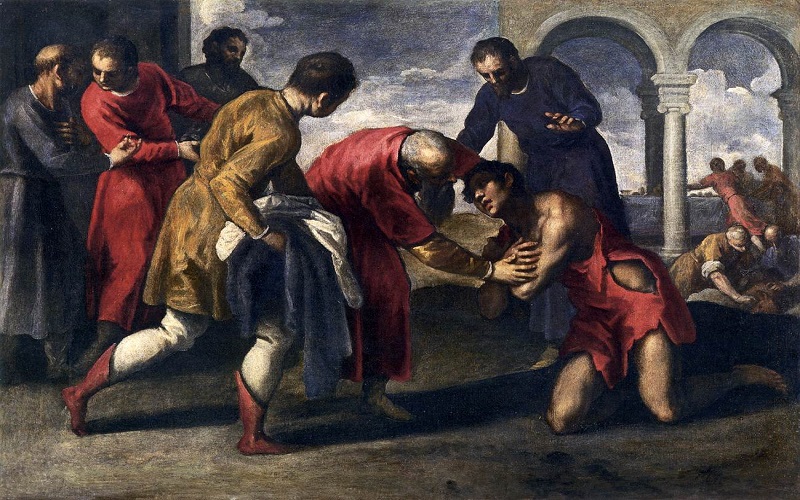

I have always been a rule follower. You give me a set of rules, and I will follow them as perfectly as possible. And affirm myself for doing so. I’m the type of person who wants every “t” crossed and every “i” dotted. And I expect you to follow suit. After all, rules are made to be followed, not broken. At least that’s my mantra.
So when I read Tim Keller’s The Prodigal God, it rocked my world. I don’t use that term loosely or faddishly but literally. God used Keller to teach me that I was legalistic, a Pharisee by nature. My perfect rule following was evil to the core, and my wicked heart was lost in its goodness.
In The Prodigal God, Keller unpacks the passage of Scripture commonly referred to as The Parable of the Prodigal Son found in Luke 15:11-32. But he does so in a way that was completely new to me. He taught me that there were actually two lost sons, not just one, and that the rule-follower (the elder brother) was just as lost as the rule-breaker (the younger brother).
Keller writes: “The narrative is as much about the elder brother as the younger, and as much about the father as the sons. And what Jesus says about the older brother is one of the most important messages given to us in the Bible.”
Here is a more lengthy excerpt from the book:
“Neither son loved the father for himself. They both were using the father for their own self-centered ends rather than loving, enjoying, and serving him for his own sake. This means that you can rebel against God and be alienated from him either by breaking his rules or by keeping all of them diligently. It's a shocking message: Careful obedience to God's law may serve as a strategy for rebelling against God.”
This was news to me. I thought all my virtuous efforts had to be intrinsically good and pleasing to God. Surely they would earn his favor. But I realized very quickly that they were not and did not, and they had absolutely no bearing on my status before Him.
While reading the book, I quickly identified with the elder brother and painfully realized that he and I were one in the same. I was being good for my own gain. I was the audience to which Keller was writing:
“The targets of this story are not ‘wayward sinners’ but religious people who do everything the Bible requires. Jesus is pleading not so much with immoral outsiders as with moral insiders. He wants to show them their blindness, narrowness, and self-righteousness, and how these things are destroying both their own souls and the lives of the people around them.”
This was a rude awakening to me for which I am eternally grateful.
As Keller puts it, I never really knew a person could “avoid Jesus as Savior by keeping all the moral laws. If you do that, then you have ‘rights.’ God owes you answered prayers, and a good life, and a ticket to heaven when you die. You don’t need a Savior who pardons you by free grace, for you are your own Savior.”
After the Holy Spirit used Keller’s book to give me a whole new understanding of myself, my sinful condition and my need for repentance, He also gave me a new perspective and gratefulness for God and His character.
Until reading The Prodigal God, I had always understood the word “prodigal” to have a negative connotation. After all, it was used to describe the younger son who lived a wayward life and squandered all his inheritance. But Keller references the Merriam-Webster Collegiate Dictionary to define it as “recklessly spendthrift,” and he uses the term to describe the father, who represents God, in the parable.
“It means to spend until you have nothing left,” Keller writes. “This term is therefore as appropriate for describing the father in the story as his younger son. The father’s welcome to the repentant son was literally reckless, because he refused to ‘reckon’ or count his sin against him or demand repayment.”
Keller goes on to explain that the father’s response to the younger son offended the older rule-keeping brother. It was as if the elder brother’s righteous living was now pointless, and apart from the work of Christ in his life, it was.
Keller uses 2 Corinthians 5:19 (ASV) to explain the father’s response in the parable: “God was in Christ reconciling the world unto himself, not reckoning unto them their trespasses. …”
He adds: “Jesus is showing us the God of Great Expenditure, who is nothing if not prodigal toward us, his children. God’s reckless grace is our greatest hope, a life-changing experience, and the subject of this book” – a book every person should read.
The above excerpts and quotations taken from the book are only a sampling of the wisdom one can glean from this book. The message of the book is golden. Get it. Read it. Devour it. Apply it. And beg the Lord to go to work recklessly replacing your self-righteousness with the righteousness of Christ.
“For by grace you have been saved through faith. And this is not your own doing; it is the gift of God, not a result of works, so that no one may boast” (Ephesians 2:8-9, ESV, emphasis added).

